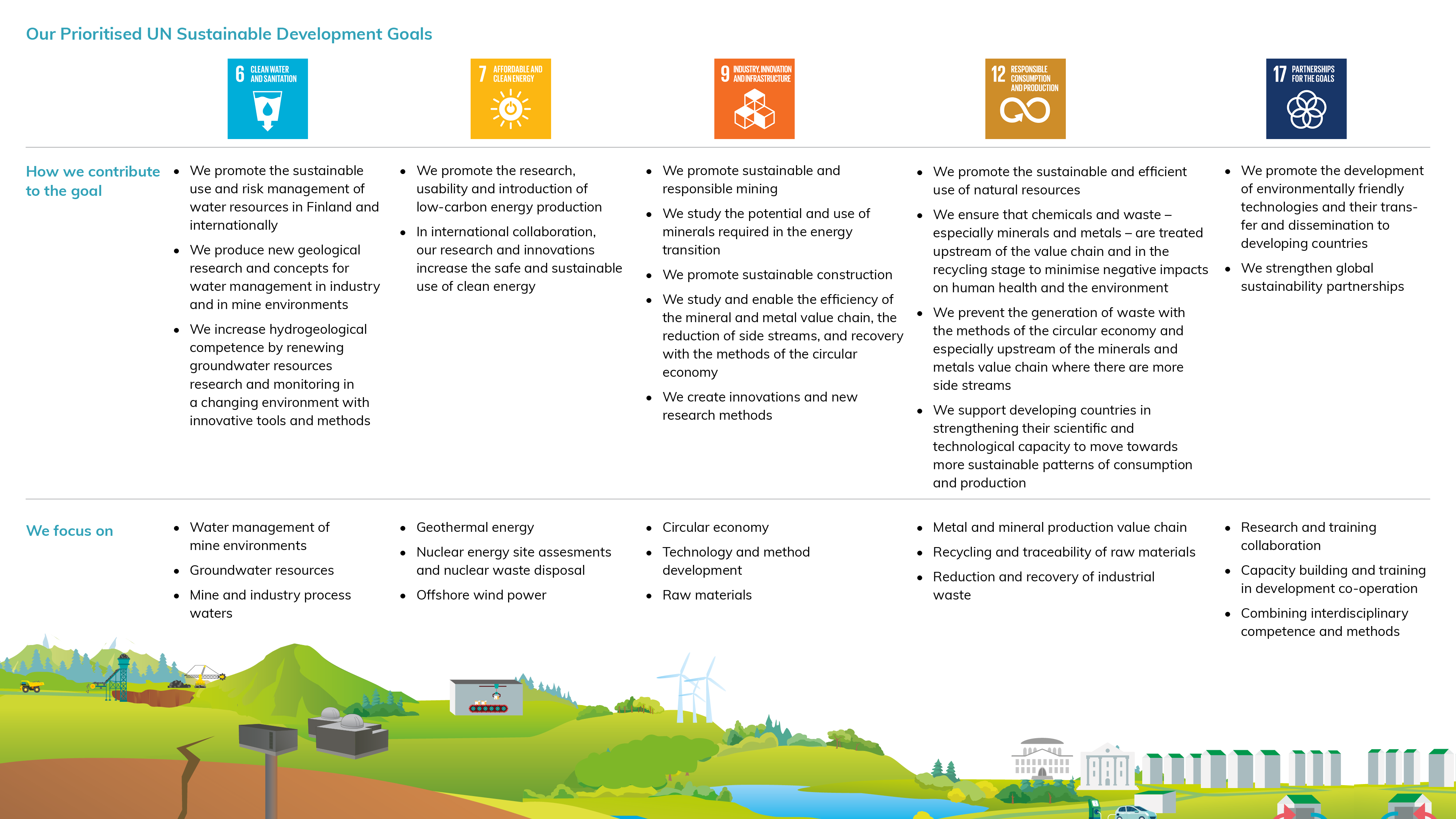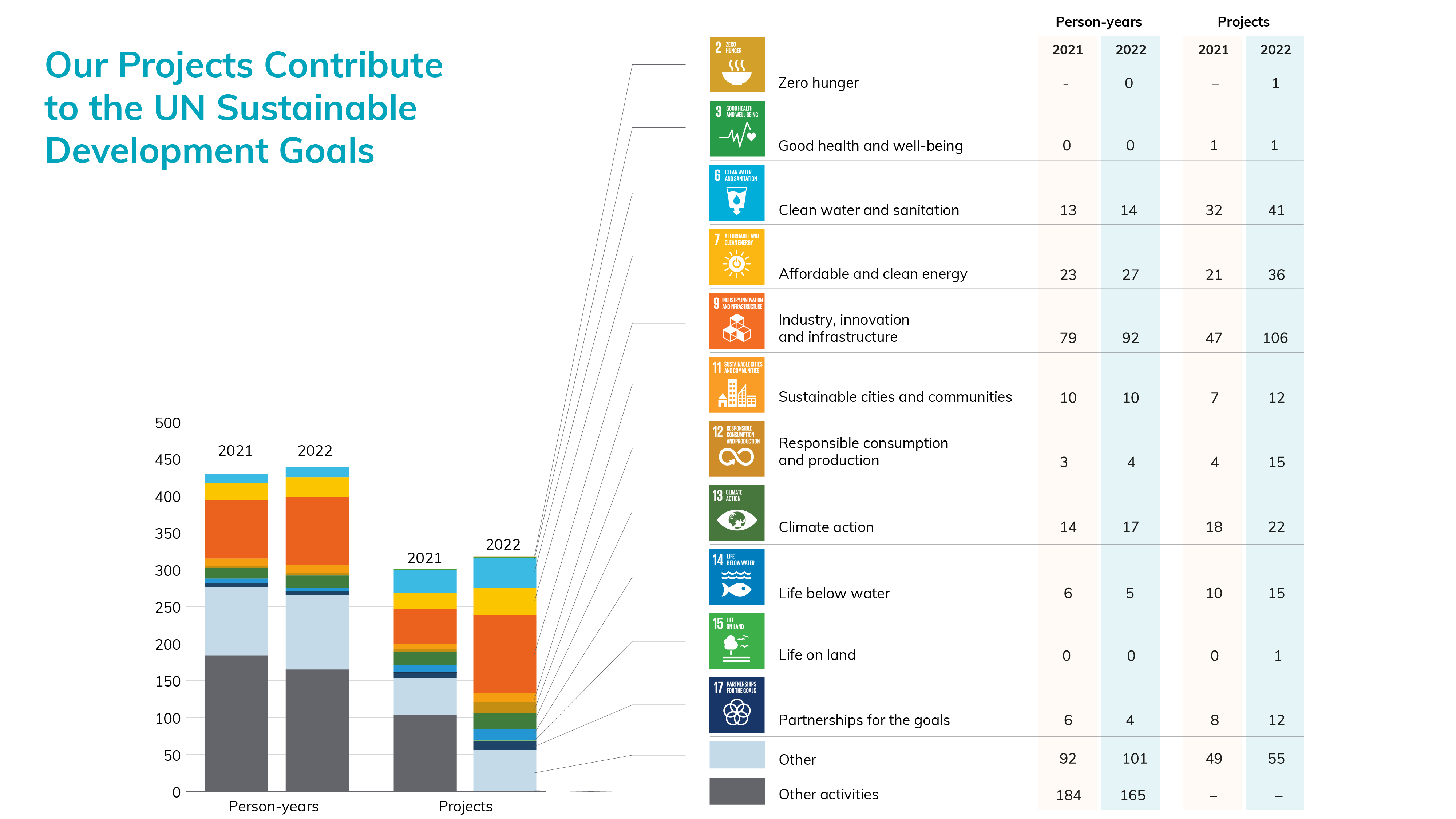Sustainability Goals
We are committed to promoting the UN’s Agenda 2030 goals and the government’s Agenda 2030 roadmap.
The UN Sustainable Development Goals (SDGs) serve as the framework for our sustainability work. We have selected five of the UN Sustainable Development Goals and their targets to which our research can make the most significant contribution. The five goals were selected by the management in autumn 2021 and derived from our strategy 2020‒2023. We estimate that our handprint will be most effective for these prioritised goals. In addition to the prioritised goals, we contribute to other UN SDGs.
We defined GTK’s strategic goals for the selected five SDGs in 2022 and monitor their progress annually in our sustainability report.
Our projects and UN Sustainable Development Goals
Our operating results are primarily achieved with projects. Our project activities are therefore key for our productivity and impact.
Our research and project activities are divided into self-financed, co-financed, co-operation, and commercial projects. Self-financed projects are funded with funds from the state budget. In co-financed projects, we work with partners in projects funded by e.g. the Academy of Finland or the European Union.
Commercial research projects are projects carried out for Finnish and international customers and organisations. Our commercial activities focus on market sectors that have a demand for GTK’s research-based competence. Our customers include companies and organisations from the mining, water and environment management, energy, metal and chemistry, infrastructure and construction sectors.
We monitor our project portfolio in relation to the SDGs by identifying which Sustainable Development Goal each project primarily contributes to. The category ‘Other’ in the table below includes projects for which an SDG has not been defined. ‘Other functions’ refers to GTK’s non-project activities, such as support functions.
Our aim is to produce similar information for GTK’s scientific publications in the future.
Environmental, social and governance
Our sustainability work aims to have a positive handprint, i.e. a positive impact on the UN Sustainable Development Goals. As a research and expert organisation, our main way of contributing to the five selected SDGs is to produce related knowledge and solutions.
We also examine our sustainability work through environmental, social and governance sustainability. We describe our progress in relation to our goals from a handprint and footprint perspective in our annual sustainability report.
Environmental sustainability
• Footprint mapping and reduction (procurement, travel, premises)
Social sustainability
• Promoting occupational safety
• Building employee competence and well-being
• An attractive employer
Governance
• Sustainable procurement
• Transparency of science and dialogue
• Sustainable finances and productivity


